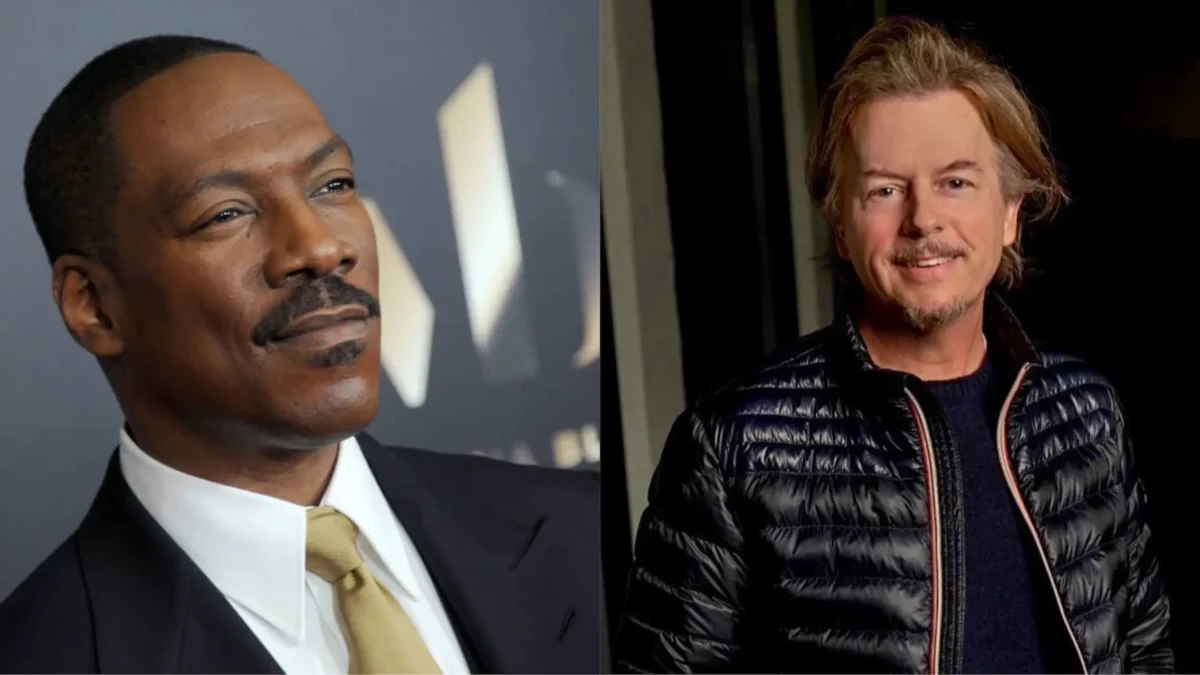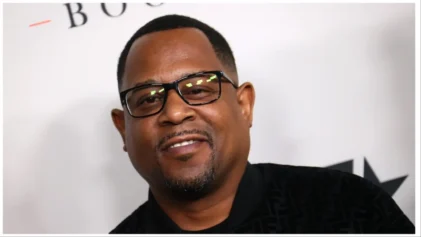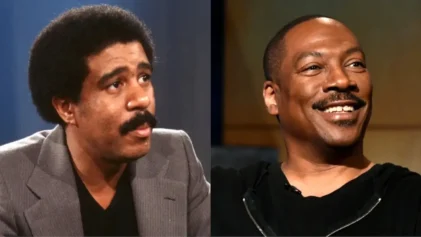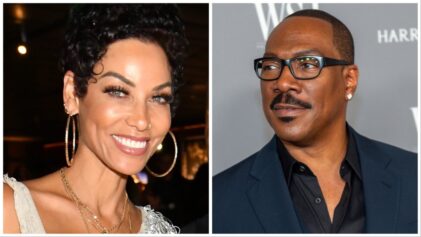Eddie Murphy can take a joke, but not everything that has been said about him warrants a chuckle. The comedian spoke with The New York Times “The Interview” podcast about the low-brow remarks that stung more than others earlier in his career.
For instance, the “You People” star said that when it came to “cheap shots,” he was a punching bag for anyone who took issue with his rise to fame in the early ’80s.
“Oh wow, back in the old days they used to be relentless on me. A lot of it was racist stuff; you know, it was a whole different — there was no Black Hollywood, there was no rappers, and it wasn’t hip-hop. It was the 80s, and it was, you know, just a whole different world,” he told the outlet.

Murphy further explained, “You would do interviews and be like I didn’t say that, I don’t talk that way. It would be writing it in this weird, ghetto … I would have really weird s—t that would go on.” He added that when he became popular, “then there was this negative backlash that comes with the dislike. I was the only one out there. I’m this young, rich, Black one. Everybody wasn’t happy about that in 1983. Even Black folks. You get cheap shots from your people.”
He used Ebony magazine’s scathing comment about hoping for the day a Black actor could portray a professor that wasn’t nutty, following the release of the 1996 comedy “The Nutty Professor,” to illustrate the hits he took. The 63-year-old said the insulting remark stung just as much as when fellow “Saturday Night Live” alum David Spade took a swipe at him after “Vampire in Brooklyn” failed to wow audiences at the box office in 1995.
“Look, children, it’s a falling star. Make a wish,” said Spade as a headshot of Murphy was displayed during a “Hollywood Minute” segment. “Yeah, yes, yes, that’s right…Hollywood made an omelet, you break some eggs. Don’t write the letters, [if you] can’t take the joke,” he hit back as the audience responded with a mix of laughter and disapproving groans.
“It was like, ‘Yo, it’s in-house! I’m one of the family, and you’re f—king with me like that?’ It hurt my feelings like that,” said Murphy, comparing Ebony’s jab to Spade’s joke.
“This is ‘Saturday Night Live.’ I’m the biggest thing that came off that show. The show would have been off the air if I didn’t go back on the show, and now you got somebody from the cast making a crack about my career. And I know he can’t just say that a joke has to go through these channels. So the producers thought it was OK to say that.”
Moreover, the veteran talent said, “You’ve never, all the people that have been on that show you never heard nobody make no joke about anybody’s career, and most people get off that show they don’t do on to have these amazing careers…It was personal…So yeah, I thought that was a cheap shot and it was kind of racist. I felt it was racist.”
The multi-hyphenate entertainer was on the NBC sketch show from 1980 to 1984. Former executive producer Dick Ebersol told CNN’s Bill Carter, “I’m building the whole show around him next season. This kid is a one-of-a-kind star,” in 1982.
At that time, “SNL” had been on the air for seven years and was nearing the end of its run after two disastrous seasons. Murphy was the star that breathed new energy into its legacy.
His stardom kicked into high gear when the first “Beverly Hills Cop” was released the year he left the show, and his stand-up comic career was solidified three years after his departure in 1987 when the special “Eddie Murphy: Raw” was released.
He did not return to his old stomping grounds until “SNL” celebrated its 40th anniversary with a special episode in 2015 and then again when he hosted in 2019. In his memoir, “Almost Interesting,” the “Joe Dirt” actor said he understood where Murphy’s anger came from. “Everybody in showbiz wants people to like them. That’s how you get fans. But when you get reamed in a sketch or online or however, that s—t staaaangs,” Spade wrote.
As for Murphy, he says that the wisecrack is water under the bridge, and he no longer harbors hard feelings toward Spade or “SNL” producers.


